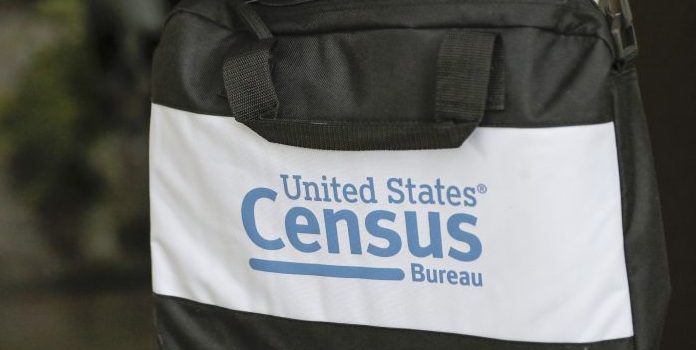(Headline USA) Saying the president had exceeded his authority, a panel of three federal judges on Thursday blocked an order from President Donald Trump that tried to exclude people in the country illegally from being counted when congressional districts are redrawn.
The federal judges in New York, in granting an injunction, said the presidential order issued in late July was unlawful.
The judges prohibited Commerce Secretary Wilbur Ross, whose agency oversees the U.S. Census Bureau, from excluding people in the country illegally when handing in 2020 census figures used to calculate how many congressional seats each state gets.
According to the judges, the presidential order violated laws governing the execution of the once-a-decade census and also the process for redrawing congressional districts known as apportionment by requiring that two sets of numbers be presented — one with the total count and the other minus people living in the country illegally.
The judges said that those in the country illegally qualify as people to be counted in the states they reside. They declined to say whether the order violated the Constitution.
“Throughout the Nation’s history, the figures used to determine the apportionment of Congress — in the language of the current statutes, the ‘total population’ and the ‘whole number of persons’ in each State — have included every person residing in the United States at the time of the census, whether citizen or non-citizen and whether living here with legal status or without,” the judges wrote.
Opponents of the order said it was an effort to suppress the growing political power of Latinos in the U.S. and to discriminate against immigrant communities of color. They also said undocumented residents use the nation’s roads, parks and other public amenities and should be taken into account for any distribution of federal resources.
The lawsuits challenging the presidential order in New York were brought by a coalition of cities, civil rights groups and states led by New York. Because the lawsuits dealt with questions about apportionment, it was heard by a three-judge panel that allows the decision to be appealed directly to the U.S. Supreme Court.
The judges agreed with the coalition that the order created confusion among undocumented residents over whether they should participate in the 2020 census, deterring participation and jeopardizing the quality of the census data. That harm to the census was a sufficient basis for their ruling and they didn’t need to rely on the speculation that a state would be hurt by possibly losing a congressional seat if people in the country illegally were excluded from apportionment, the judges said.
The head count of every U.S. resident, which which helps determine the distribution of $1.5 trillion in federal funding as well as apportionment, is set to wrap up at the end of September.
“This is the most blatantly unconstitutional act I’ve ever encountered in years litigating the federal government,” Dale Ho, director of the ACLU’s Voting Rights Project, one of the groups that challenged the order, said in an interview.
New York Attorney General Letitia James noted that the federal court in New York also had ruled against the Trump administration in its failed attempt to add a citizenship question to the 2020 census. That case went to the Supreme Court which blocked the citizenship question from being added.
“The courts have ruled in our favor on every census matter in the last two years and continually rejected President Trump’s unlawful efforts to manipulate the census for political purposes,” James said.
Alabama Congressman Mo Brooks, a Republican, has been litigating in support of keeping illegal immigrants out of the census count for the purposes of redistricting. He was recently deposed by groups opposed to his lawsuit.
“The attorneys who deposed me represented various illegal alien sanctuary parts of the country that hope to gain political power at the expense of Alabama and other law-abiding states,” Brooks said in a statement last month. “I steadfastly defended the Constitutional rights of Alabamians in the face of those who seek to undermine the rights of American citizens in favor of illegal aliens.”
An analysis by Pew Research Center showed that California, Florida and Texas would end up with one less congressional seat if people in the country illegally were excluded from apportionment. Alabama, Minnesota and Ohio would each keep a congressional seat they most likely would have lost if the presidential order were enforced, according to the Pew analysis.
The Commerce Department didn’t respond to an emailed inquiry.
Adapted from reporting by Associated Press.

